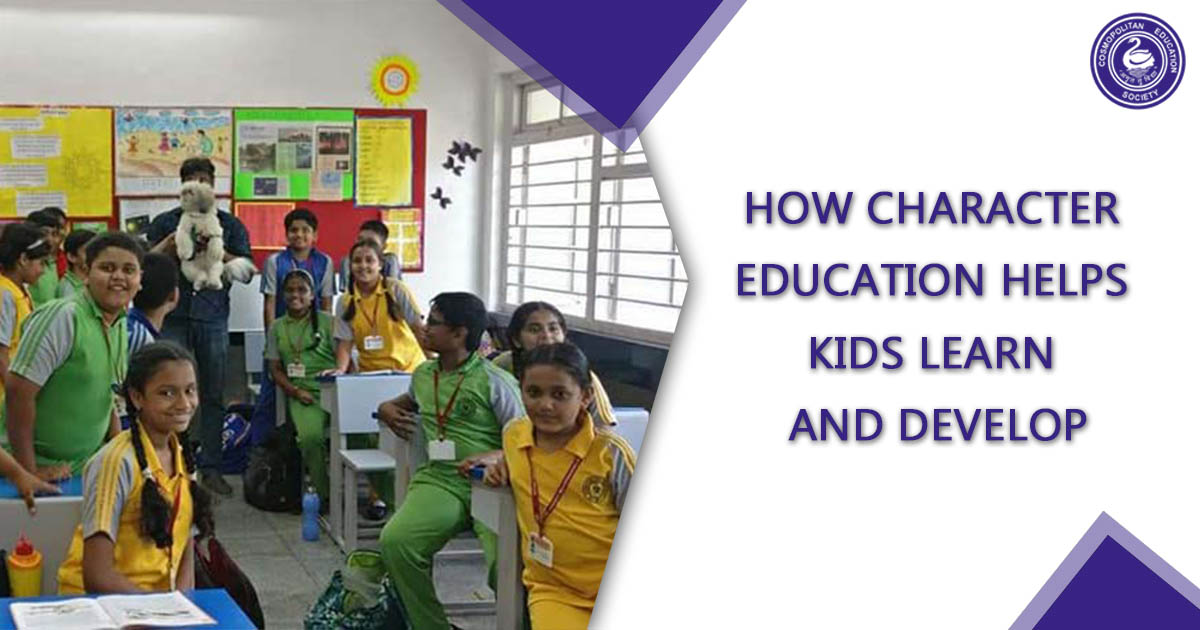
How Character Education Helps Kids Learn and Develop
There is a miss conception that education is only about learning subjects such as math, English, and science. A more exhaustive definition of education emphasizes on emotions, personality, and character building. Parents are looking forward to enrolling their children in more balanced and healthy schools. This is the main reason why character education is so vital in today’s education system. It not only provides a holistic approach to learning but also helps your child to develop as an all-rounder individual.
Before we move to how Character education impacts your child’s learning and Development let’s explore what is character education.
What is Character Education?
Character education is nothing but an approach to education that incorporates values, ethics, emotional maturity and a sense of civics. To most of you, this sounds as simple as learning manners and maturity development, however, traditional education has been working on a one-track mind i.e. focusing entirely on students’ academics with less or no attention to physical development (e.g. physical education, sports). In the modern educational world parents and educators increasingly recognize the need for a new yet traditional approach to education, one that emphasizes both character and intellectual development.
What does Character Education cover?
There’s no chalked-down curriculum for character education in school. Using any approach to learning, there are different theories on how to instill positive values and character traits within students. Please note, this will differ according to culture and the age of the students you are imparting character education to. However, there are, certain general principles that character education advocates agree upon. The 11 Principles of Character Education as outlined by Character.org provides a helpful summary of this idea.
- Educators promote core ethical and performance values to instill good character in students.
- A comprehensive definition of character, which includes thoughts, emotions, and actions.
- Educators use an intentional, proactive, and comprehensive approach to character development.
- To support this process, schools create caring and supportive communities.
- Educators encourage students to develop morally and provide opportunities to grow morally.
- Schools create a challenging academic environment to helps students develop character.
- Educators foster self-motivation in students.
- Educators and all school staff are part of an ethical learning community and adhere to the same values that they teach.
- Schools foster leadership values.
- Schools engage parents and other members of the community as partners in character-building efforts.
- Schools regularly assess their culture, their staff and their overall success at fostering character development.
As you can derive from the above list, character education involves an exhaustive approach that includes a robust academic curriculum, a dedicated staff, and a partnership with parents and the wider community. Compared to traditional education systems, an educational system that incorporates character learning is more challenging. This is because building character is a more complicated and wider-reaching goal. With the potential to yield outstanding results, character education helps students become ethical and responsible citizens.
The Role of Educators in Character Building
People often assume that parents are responsible for fostering values in children rather than educators. Since school is the place where your child will spend maximum time in the day, the school environment will foster these traits with time. Though parents certainly have a vital role to play in this regard, they can’t carry this responsibility alone. Hence, a school has to put in combined efforts along with the parents in a seamless manner to achieve this challenging goal.
You cannot deny that by the time your children starts schooling, he/she has already developed many personality traits. These traits can be as simple as saying a thank you when someone gives you something or saying sorry when you hurt someone. In school, as kids interact with their peer students and teachers, they have many opportunities to learn valuable lessons.
Educators who ignore character-building are overlooking a crucial opportunity to help students grow into responsible adults. Under this model, educators work closely with parents and the rest of the community as partners in character development.
Summing up:
The principles of character education are certainly not new. This model of education is rather, seeking to create an environment that aids students face the challenges of living in a complex and fast-changing world. At Shri. Harshad C. Valia International School (CBSE) we emphasize on the Importance of Value-based Teaching and Learning. We believe in not only churning out intelligent but also value-driven students making them ready for life’s future challenges.
